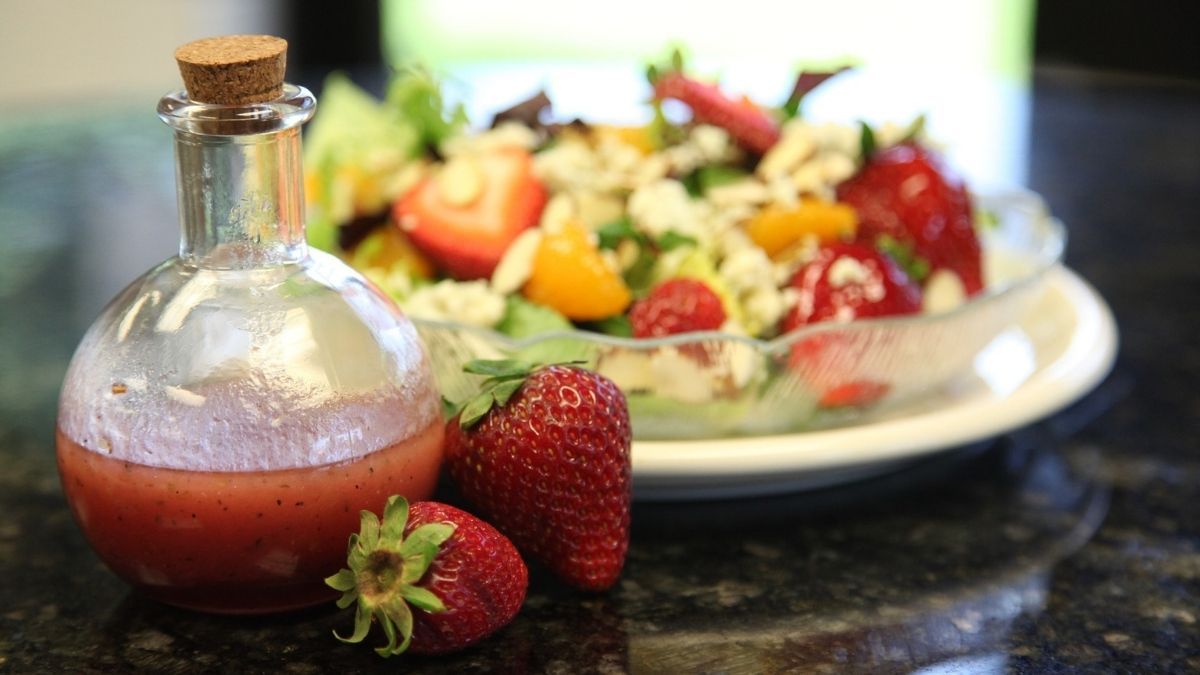On September 22, 2021, a video clip was widely circulated on social media that supposedly showed retired General Michael Flynn saying that the COVID-19 vaccine could be put into salad dressing.
Flynn said: "Somebody sent me a thing this morning where they're talking about putting the vaccine in salad dressing."
While this clip is widely circulated as if it showed Flynn, who pled guilty to lying to the FBI during Special Counsel Robert Mueller's investigation into the 2016 election (he was later pardoned by President Trump), espousing conspiratorial nonsense, there's actually a nugget of truth here.
The COVID-19 vaccine is not being put into salad dressing, nor has anyone proposed such a thing. However, similar mRNA vaccines could be grown in edible plants like lettuce, and that is something that is now being actively researched.
A few days before Flynn made this comment, the University of California, Riverside published a news release about a research program that was attempting to "turn edible plants like lettuce into mRNA vaccine factories." UCR said that the National Science Foundation had provided a $500,000 grant to pursue this research.
An article from UCR reads:
The future of vaccines may look more like eating a salad than getting a shot in the arm. UC Riverside scientists are studying whether they can turn edible plants like lettuce into mRNA vaccine factories.
Messenger RNA or mRNA technology, used in COVID-19 vaccines, works by teaching our cells to recognize and protect us against infectious diseases.
[...]
The project’s goals, made possible by a $500,000 grant from the National Science Foundation, are threefold: showing that DNA containing the mRNA vaccines can be successfully delivered into the part of plant cells where it will replicate, demonstrating the plants can produce enough mRNA to rival a traditional shot, and finally, determining the right dosage.
One of the problems with the current COVID-19 vaccine (and similar mRNA vaccines) is that they need to be stored at cold temperatures. If this program is successful, these new vaccine-making vegetables could allow mRNA vaccines to be stored at room temperature:
"One of the challenges with this new technology is that it must be kept cold to maintain stability during transport and storage. If this new project is successful, plant-based mRNA vaccines — which can be eaten — could overcome this challenge with the ability to be stored at room temperature."
Juan Pablo Giraldo, an associate professor in UCR’s Department of Botany and Plant Sciences, said that a "single plant would produce enough mRNA to vaccinate a single person." The program is currently focused on spinach and lettuce. Giraldo said that the goal is for these plants to be grown both in individual gardens and in large farm fields.
Giraldo explained that it's possible for chloroplasts, the part of the plant responsible for photosynthesis, to express new genes. Giraldo said: "They’re tiny, solar-powered factories that produce sugar and other molecules which allow the plant to grow ... They’re also an untapped source for making desirable molecules.”
A news release from UCR reads:
For this project Giraldo teamed up with Nicole Steinmetz, a UC San Diego professor of nanoengineering, to utilize nanotechnologies engineered by her team that will deliver genetic material to the chloroplasts.
"Our idea is to repurpose naturally occurring nanoparticles, namely plant viruses, for gene delivery to plants," Steinmetz said. "Some engineering goes into this to make the nanoparticles go to the chloroplasts and also to render them non-infectious toward the plants."
For Giraldo, the chance to develop this idea with mRNA is the culmination of a dream. “One of the reasons I started working in nanotechnology was so I could apply it to plants and create new technology solutions. Not just for food, but for high-value products as well, like pharmaceuticals,” Giraldo said.
These vaccine veggies probably won't provide any edible protection during the COVID-19 pandemic. This program is still in its beginning stages and there's no timeline for when our lettuce, spinach, and other vegetables may start producing mRNA vaccines.
